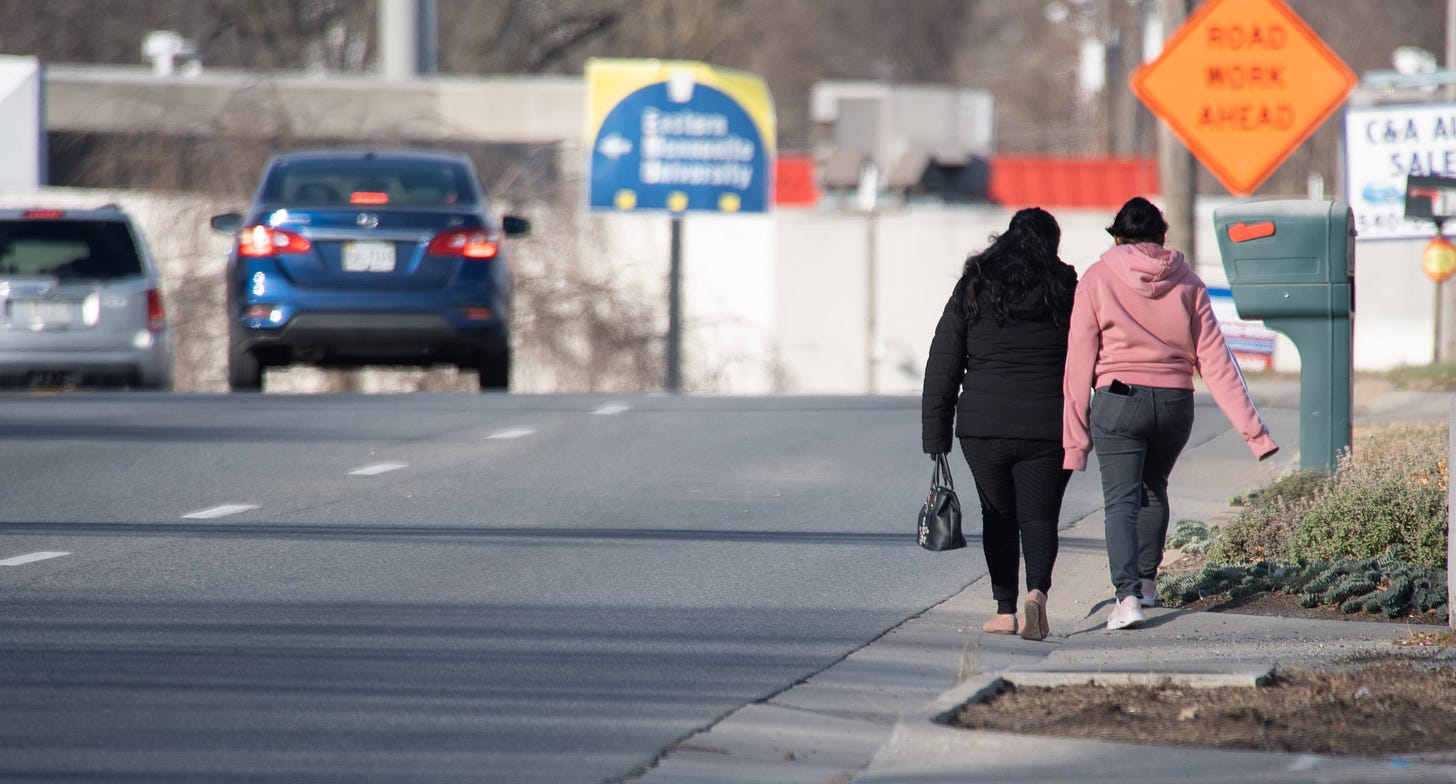Is there an exit ramp from car dependency?
Part one of a three-part series about transportation on The Harrisonburg Citizen.
Cars and trucks are the largest source of carbon emissions in Virginia and account for almost a third of emissions in Harrisonburg. The evidence is clear that our petroleum-powered automobiles are playing a major role in the breakdown of our climate. It’s less clear what we are supposed to do with that information, given the car-dependent design of our city.
We must take transportation costs and climate impacts into account as we work to address the affordable housing crisis. But we’ve given ourselves no other choice but to drive, and for most of us, that means we’re forced to own a car whether we want to or not. At the same time, owning a car has become increasingly unaffordable. Near-mandatory car ownership is a problem both for our climate and for working class families struggling to pay for housing and transportation.
Is there an exit ramp from motonormativity? Have we resigned ourselves and future generations to perpetual car-dependency? What’s the alternative to car ownership?
Read part one of my three-part series about transportation on The Harrisonburg Citizen.




I am a life-long non-driver (as in, I don’t even have a driver’s license) for many reasons, but I do benefit from having a car in our household. I think many of the things keeping a lot of people from considering alternatives are a matter of convenience. Sure, I can get to a lot of the same places with a combination of buses and walking, but it requires a lot more planning on my part and often a lot more time. And that is with me being fortunate enough to live near the crossing of a few of our bus lines. I am used to it because I have done it for most of my life, but for many, the inflection point where the infrastructure is good enough to abandon the perceived comfort, safety, and reliability of their personal vehicle is still far away from where we are today. For everyone, that spot is going to be different, but there are certainly ways we can encourage it along—like you are doing with this series. The best little quip I’ve heard on the subject is that everything we do to get cars off the road, empower people to use less obtrusive forms of transportation, and build better-connected communities will make everyone’s experience better—even those who still drive.